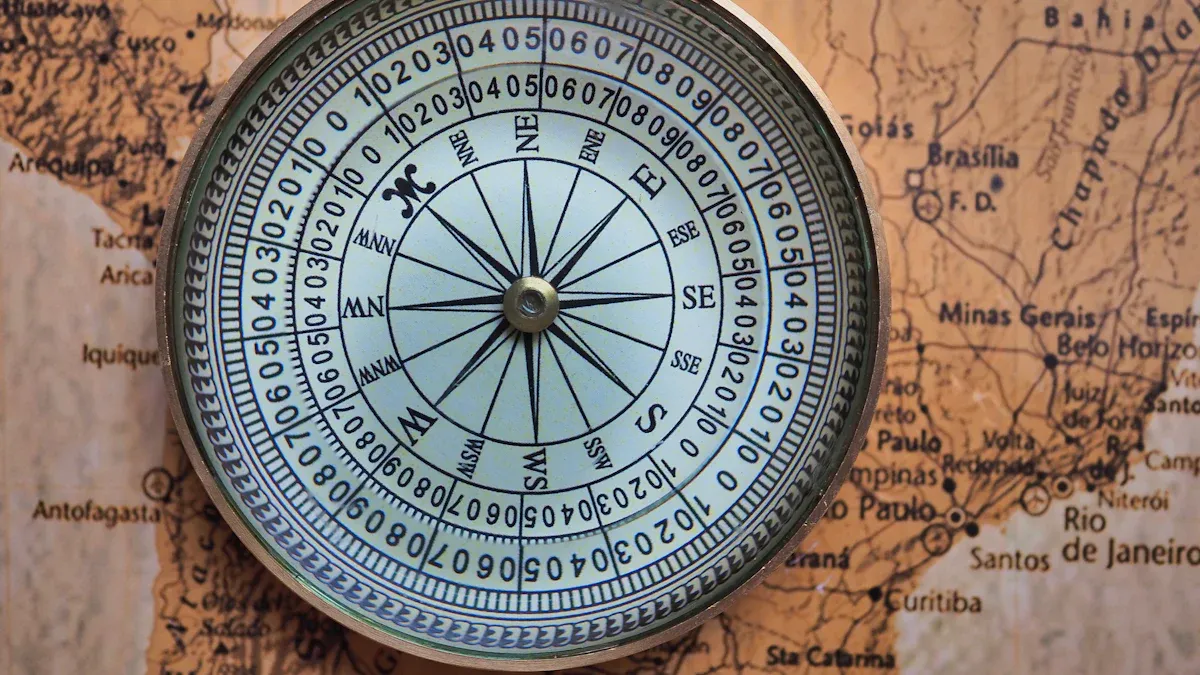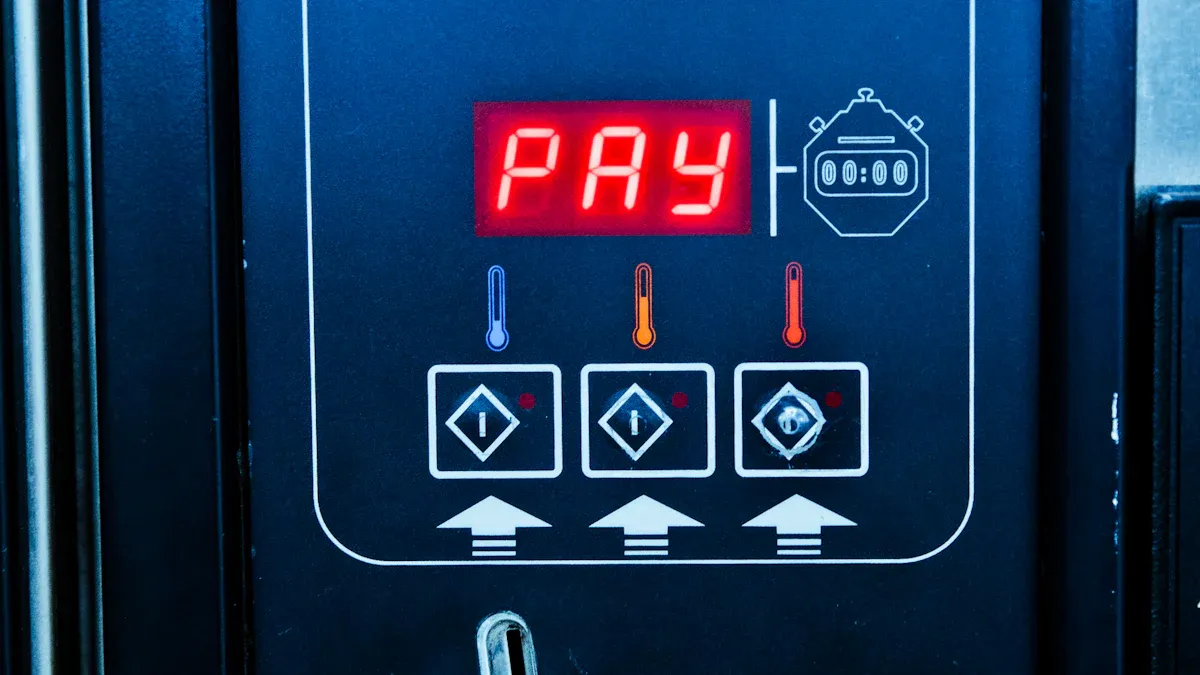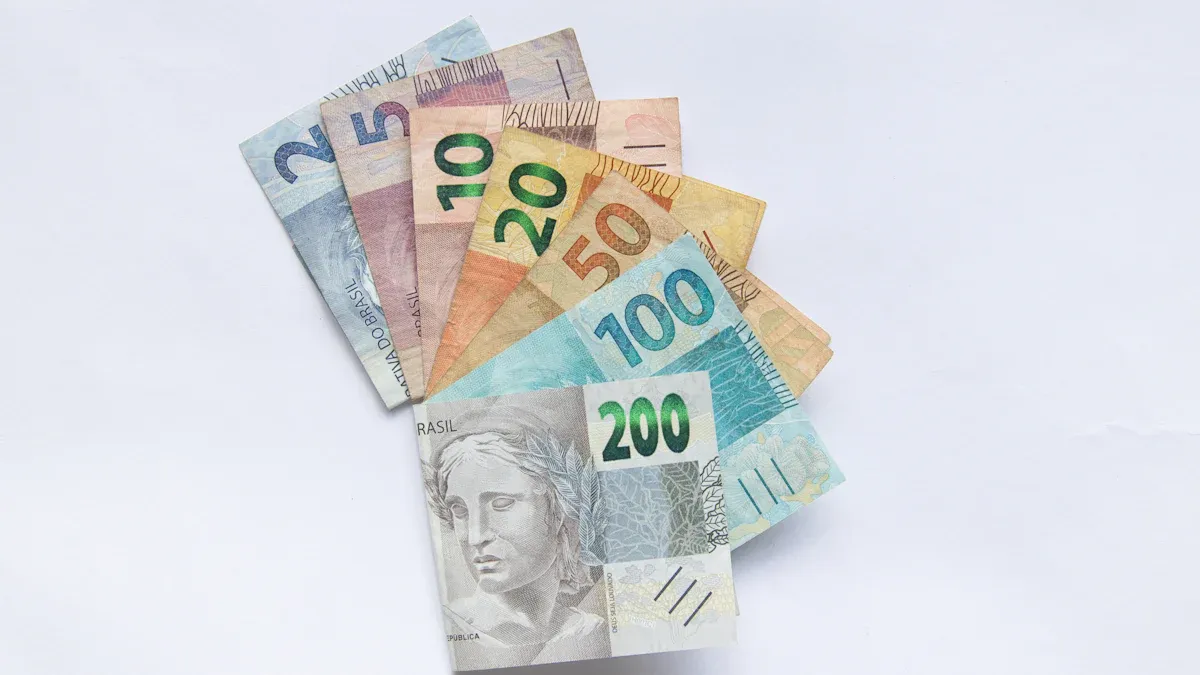- EasyCard
- Trade
- Help
- Announcement
- Academy
- SWIFT Code
- Iban Number
- Referral
- Customer Service
- Blog
- Creator
CPF vs CNPJ which one do you need and how to apply

Image Source: pexels
CPF is for individuals, while CNPJ is for businesses in Brazil. You might wonder which one you actually need. If you plan to live, work, or invest in Brazil, these numbers play a big role. You need a CPF to buy property, open a bank account, or sign contracts. If you want to start a company, you need a CNPJ. Both CPF or CNPJ must stay active for legal and tax compliance. Most CNPJ applications in Brazil take about 5 to 10 business days if you submit everything correctly. Platforms like MetaMap help many companies in Brazil verify these numbers and fight fraud.
Key Takeaways
- CPF is an individual tax number needed for personal activities like opening bank accounts, buying property, and paying taxes in Brazil.
- CNPJ is a business tax number required to start and run companies, hire employees, and handle business taxes in Brazil.
- You need a CPF if you act as a person and a CNPJ if you act as a business; each number serves a different legal purpose.
- Applying for a CPF is simple and fast, while getting a CNPJ involves more steps and documents, including a Brazilian legal representative.
- Always keep your CPF or CNPJ active and up to date to avoid legal or financial problems in Brazil.
cpf
What is CPF
You might hear people in Brazil talk about the CPF all the time. The CPF, or cadastro de pessoas físicas, is your individual taxpayer identification number. According to the Secretaria da Receita Federal, the CPF is an identification number that helps track your tax obligations and financial activities. This number is permanent and has eleven digits. The CPF replaced the old taxpayer identification card and now serves as a key tool for tax, social security, and legal activities. If you want to do almost anything official in Brazil, you need this tax number. The CPF acts as your main ID for tax and financial matters.
Who Needs a CPF
If you plan to live, work, or invest in Brazil, you need a CPF. Every person, whether Brazilian or foreigner, can apply for a CPF. You need it if you have any tax duties in Brazil. Even if you do not live there, you might need a CPF to open a bank account, buy property, or handle legal matters. The cadastro de pessoa física is not just for citizens. Foreigners who want to invest, inherit property, or start a business in Brazil also need this individual taxpayer registry. The CPF is your gateway to many services and rights in Brazil.
Uses in Brazil
You will use your CPF in many daily situations. Here are some common uses:
- Opening a bank account
- Making online purchases
- Paying taxes
- Buying real estate or vehicles
- Signing contracts
- Registering for public services
- Investing in the financial market
- Starting a business
- Handling legal matters
The CPF is more than just a tax number. It is your main identification for financial and legal actions. You need it for almost every important transaction. The cadastro de pessoa física and cadastro de pessoas físicas both refer to this individual taxpayer registry. You will find that your CPF is required for banking, tax payments, and even for simple things like signing up for a phone plan. If you want to keep your financial life in Brazil smooth, make sure your CPF stays active and up to date.
cnpj
What is CNPJ
You will hear about the cnpj if you want to start a company in Brazil. The cnpj stands for cadastro nacional da pessoa juridica. This is the business or legal entity taxpayer identification number in Brazil. Think of it as the company version of the CPF. The cnpj number is unique for each company. You use it to identify your business for tax and legal reasons. The cnpj registration number has 14 digits. You need this tax number to pay taxes, open a business bank account, and sign contracts. The government uses the cnpj to track all tax activities for companies.
Who Needs a CNPJ
If you want to open a company in Brazil, you need a cnpj. This rule applies to all types of businesses, including small shops, large corporations, and even non-profit organizations. Any legal entity that does business in Brazil must have a cnpj. You cannot run a company or pay tax without it. Even if you are a foreigner, you need a cnpj if you want to own a business in Brazil. You must have a Brazilian legal representative to help with the process. You also need to provide documents like your company’s bylaws, proof of address, and identification for all partners.
Uses for Businesses
The cnpj is important for many reasons. You need it to pay tax, hire employees, and issue invoices. Banks in Brazil will ask for your cnpj when you open a business account. You also need it to register for tax regimes and get licenses. Many companies use the cnpj to check if a business is real before making deals. The cnpj helps the government make sure every company pays the right tax. If you want to keep your business legal and active in Brazil, you must keep your cnpj up to date.
Tip: Always check that your cnpj is active before signing any business contract in Brazil. This helps you avoid tax or legal problems.
cpf or cnpj
Key Differences
You might wonder about the real difference between cpf or cnpj. These two numbers look similar, but they serve different purposes in Brazil. The cpf is for individuals. You use it for personal things like opening a bank account or buying a phone. The cnpj is for businesses. You need it if you want to start a company or run a business in Brazil.
The cpf has eleven digits. The cnpj has fourteen digits. You get a cpf as a person. You get a cnpj if you have a business or legal entity. The government uses both numbers to track taxes and make sure everyone follows the rules. If you try to do something official in Brazil, you will need one of these numbers.
Note: You cannot use a cpf for business activities. You cannot use a cnpj for personal things. Each number has its own job.
Which One Do You Need
You may ask yourself, “Do I need a cpf or cnpj?” The answer depends on what you want to do in Brazil. If you plan to live, work, or buy things as a person, you need a cpf. This number lets you open a bank account, pay taxes, and sign contracts. If you want to start a business or open a company, you need a cnpj. This number is for business owners and legal entities.
Here are some quick ways to decide:
- You want to buy property in Brazil? You need a cpf.
- You want to open a business? You need a cnpj.
- You want to invest in the stock market? You need a cpf.
- You want to hire employees? You need a cnpj.
- You want to pay personal taxes? You need a cpf.
- You want to issue invoices as a business? You need a cnpj.
If you are still not sure which one you need, think about your main goal. If you act as a person, choose cpf. If you act as a business, choose cnpj.
Comparison Table
You can use this table to see the main differences between cpf or cnpj. This quick guide helps you pick the right one for your needs in Brazil.
| Feature | CPF (Cadastro de Pessoas Físicas) | CNPJ (Cadastro Nacional da Pessoa Jurídica) |
|---|---|---|
| Who gets it? | Individuals | Businesses and legal entities |
| Number of digits | 11 | 14 |
| Main use | Personal activities | Business activities |
| Needed for | Bank accounts, contracts, taxes | Registering a company, hiring, invoices |
| Who can apply? | Brazilians and foreigners | Companies, organizations, associations |
| Where to apply | Receita Federal, banks, post office | Receita Federal, with legal representative |
| Valid for | Personal use only | Business use only |
Tip: Always check if you need a cpf or cnpj before starting any process in Brazil. This saves you time and helps you avoid problems later.
You now know how cpf or cnpj work in Brazil. If you want to do something as a person, you need a cpf. If you want to run a business, you need a cnpj. Picking the right number is the first step to staying legal and safe in Brazil.
how to get a cnpj

Image Source: pexels
Step-by-Step Process
If you want to know how to get a cnpj, you need to follow a clear process. Starting a business in Brazil means you must complete several steps for registration. Here’s what you need to do:
- Decide your company structure. You can choose from options like MEI, LTDA, or S.A. This choice affects your taxes and rules.
- Pick the CNAE codes that match your business activities.
- Check if your company name is available with the Junta Comercial.
- Write your Articles of Association (Contrato Social). This document explains who owns the company, what it does, and how it works.
- Notarize the Contrato Social with all partners’ signatures.
- Register your company with the State Board of Trade (Junta Comercial) to get your NIRE.
- Complete the cnpj request application by filling out the documento básico de entrada no cnpj (DBE) using the programa gerador de documentos do cnpj.
- Submit the DBE, NIRE, and other documents to the federal revenue.
- Register for municipal and state taxes if needed.
- Get all required licenses and open a business bank account.
Tip: You must have a Brazilian legal representative. If your documents are not in Portuguese, you need to translate and notarize them.
Required Documents
You need to gather several documents for registration. The federal revenue asks for:
- The completed DBE form.
- The Registration Form of Legal Entity (FCPJ).
- The notarized Contrato Social.
- Identification for all partners.
- Proof of address for the company.
- Board of Partners or Administrators (QSA) documents if you have a partnership.
You must submit these documents to the Junta Comercial and the federal revenue during the process.
Types of Companies
Brazil lets you pick from different company types. The most common are:
- MEI (Micro Entrepreneur): Simple and fast for small businesses.
- LTDA (Limited Liability Company): Good for most small and medium businesses.
- S.A. (Corporation): Best for large companies with many shareholders.
Each type has its own registration process and tax rules. You should choose the one that fits your business plan.
get a cpf in brazil

Image Source: pexels
Application Steps
Getting your cpf in Brazil is a simple process, but you need to follow the right steps. First, you fill out the cpf application form. You can do this online or in person. Many people choose to visit a branch of Banco do Brasil, Caixa Econômica Federal, or a Correios agency. These places help you submit your cpf application directly to the federal revenue. After you hand in your form and documents, the federal revenue reviews your cpf request. If everything looks good, you get your cpf number. Sometimes, you receive your cpf right away. Other times, you might wait a few days for the federal revenue to finish the process.
Tip: Always double-check your cpf application before you submit it. Mistakes can slow down your cpf approval.
Documents Needed
You must bring the right documents when you apply for your cpf. Here’s what you need:
- A completed cpf application form.
- Proof of identity, like a valid identity card or passport. If your documents are not in Portuguese, you must get them translated and notarized.
- If you are a Brazilian citizen who can vote, you also need your voter registration.
- For minors, you need extra documents that show your relationship to the child and your own ID.
You give these documents to the federal revenue office or the place where you start your cpf application. The staff checks your documents and sends them to the federal revenue for approval.
For Foreigners and Non-Residents
If you are not living in Brazil, you can still get your cpf. The process is almost the same. You fill out the cpf application and gather your documents. Then, you visit a Brazilian consulate or embassy. The staff there checks your cpf documents and sends them to the federal revenue in Brazil. You might need to wait a bit longer for your cpf number, but you will get it if your application is correct.
Keeping your cpf regularized is very important, especially if you live outside Brazil. An active cpf lets you buy property, invest, or handle legal matters from anywhere. If your cpf is not regularized, you could face problems with banks or the federal revenue.
Note: Always keep your cpf information up to date with the federal revenue. This helps you avoid issues with your cpf status, no matter where you live.
You now know the main differences between CPF and CNPJ. CPF works for individuals, while CNPJ is for businesses. Pick the one that matches your needs in brazil. Always check the latest rules from official government sites. > If you are a foreigner, pay close attention to the documents you need. This helps you avoid problems and keeps your plans on track.
FAQ
How long does it take to get a CPF or CNPJ?
You can get a CPF in a few days if you have all your documents ready. A CNPJ usually takes 5 to 10 business days after you submit everything correctly.
Can foreigners apply for a CPF or CNPJ?
Yes, you can apply for both as a foreigner. For a CPF, visit a Brazilian consulate or embassy. For a CNPJ, you need a Brazilian legal representative and extra documents.
Do I need a CPF to open a bank account in Brazil?
Yes, you need a CPF to open a bank account in Brazil. Most banks, including Hong Kong banks with branches in Brazil, will ask for your CPF during the process.
What happens if my CPF or CNPJ becomes inactive?
If your CPF or CNPJ becomes inactive, you cannot use it for legal or financial activities. You may face problems with banks, contracts, or taxes. Always keep your registration up to date.
Applying for a CPF or CNPJ is often the first step toward opening a bank account or starting a business in Brazil. But once you’re set up, managing international transfers through traditional banks can still be slow and expensive. That’s why many individuals and companies turn to BiyaPay. With BiyaPay, you can send money to most countries and regions worldwide, enjoy remittance fees as low as 0.5%, and freely convert between multiple fiat and digital currencies—all in one secure platform.
Unlike banks that hide fees in poor exchange rates, BiyaPay offers full transparency through its real-time exchange rate tool. Whether you’re an individual investor or a company handling global payments, BiyaPay supports same-day transfers and gives you the flexibility to grow without borders. Start today with BiyaPay.
*This article is provided for general information purposes and does not constitute legal, tax or other professional advice from BiyaPay or its subsidiaries and its affiliates, and it is not intended as a substitute for obtaining advice from a financial advisor or any other professional.
We make no representations, warranties or warranties, express or implied, as to the accuracy, completeness or timeliness of the contents of this publication.




Contact Us
Company and Team
BiyaPay Products
Customer Services
is a broker-dealer registered with the U.S. Securities and Exchange Commission (SEC) (No.: 802-127417), member of the Financial Industry Regulatory Authority (FINRA) (CRD: 325027), member of the Securities Investor Protection Corporation (SIPC), and regulated by FINRA and SEC.
registered with the US Financial Crimes Enforcement Network (FinCEN), as a Money Services Business (MSB), registration number: 31000218637349, and regulated by FinCEN.
registered as Financial Service Provider (FSP number: FSP1007221) in New Zealand, and is a member of the Financial Dispute Resolution Scheme, a New Zealand independent dispute resolution service provider.




















